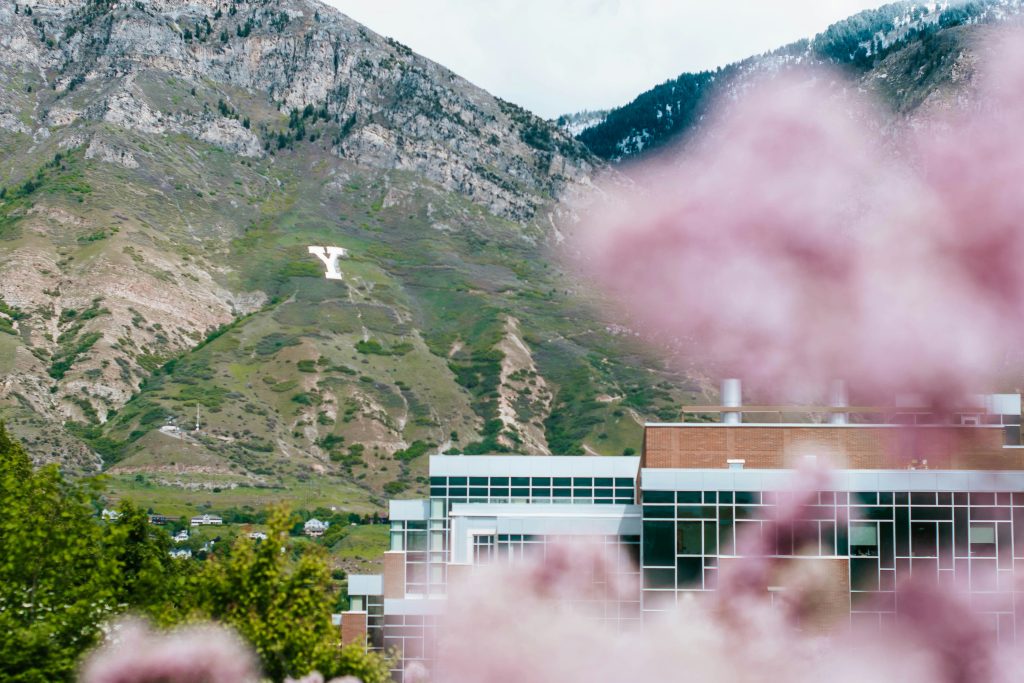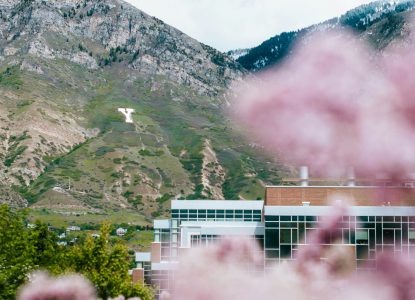By Marianna Richardson, Director of Communications for the G20 Interfaith Forum
– – –
On October 5-7. The 22nd Annual International Law and Religion Symposium happened in Provo, Utah at the J. Reuben Clark Law School. The theme of the meeting was “Building Paths to Flourishing: Regional, National, and International Protections of Religious Freedom.” Representatives of international organizations and legal scholars as well as leaders in governments, judiciaries, civil society, and religions met to discuss the impact that regional and international organization have on ensuring freedom of religion or belief and the resolution of tensions between national and individual independence with shared religious freedom commitments for the protection of all.
The following is a summary of some of the highlights from this event, especially looking at two speakers who work closely with G20 Interfaith Forum – Husna Ahmad OBE, CEO of Global One, and Reverend Lord Dr. Russell Rook OBE, Member of the House of Lords – and a synopsis of a discussion on AI and tolerance.
Husna Ahmad: Faith, Justice, and the Flourishing of Humanity
Husna Ahmad’s address was a stirring call to recognize the transformative power of faith in promoting social justice, equity, and inclusive societies. Drawing from personal experience and global realities, she highlighted how faith offers resilience in times of calamity and serves as a foundation for human dignity. In an era marked by war, displacement, and institutional failure, she challenged us to reimagine systems that have long outlived their relevance—such as the Bretton Woods institutions—and confront the lingering shadows of colonialism and injustice in places like Sudan and Ukraine.
Central to her message was the sacred worth of every human being. “Can you put a price on a person?” she asked, reminding us that all people and creatures deserve protection, balance, and justice. Islamic teachings affirm this truth: “He created you so that you may know one another.” Culture and identity, she insisted, are not threats but gifts to be celebrated. A clean environment, physical and spiritual well-being, and the 99 names of the Creator reflect the holistic sustenance that faith provides.
Husna also addressed the instrumentalization of religion and the marginalization of minorities, especially women of faith. Islamophobia, rooted in racism and the perception of “Muslimness,” leads to violence, exclusion, and the denial of education and leadership. Yet she affirmed that Islamic teachings do not block women’s leadership—in fact, they elevate it. Women of faith face double barriers, but their love, protection, and empathy are profound forces for change.
Faith-based actors and religious leaders, she argued, must unite to catalyze flourishing. Religious freedom is not merely a legal principle—it is a moral promise to uphold intrinsic dignity. Sustainable development, she reminded us, is inseparable from human rights and the universal call to action embedded in all faith traditions.
She outlined five pathways forward: (1) legal protections for fundamental rights, (2) faith literacy to foster interreligious understanding, (3) institutional platforms like IF20, (4) integration of women of faith in leadership, and (5) global ethical accountability to hold states responsible. Islam offers three guiding principles: life is finite and sacred, knowledge is the key to paradise, and community transcends race, nationality, and power.
In closing, Husna called for a recommitment to freedom, faith, and moral intention. “If the body is sound,” she said, “all is well. If diseased, all suffers.” Her message was a torrent of moral energy—a plea to build a world where every person can flourish in dignity and peace.

Lord Rook: Two Pathways to Freedom of Belief: Political and Theological Approaches
Lord Rook defined a vision of flourishing through freedom of belief with a deeper exploration of two interconnected pathways: the political and the theological. Both are essential to protecting human dignity and promoting inclusive societies.
The political pathway begins with international human rights frameworks, particularly Article 18 of the Universal Declaration of Human Rights. Governments around the world use this as a foundation to promote Freedom of Religion or Belief (FORB), appoint ambassadors, and create safe spaces for dialogue. Progress is evident in growing political alignment and international cooperation. However, challenges arise when FORB becomes politicized—used to advance partisan agendas or nationalistic ideologies. In some contexts, FORB is linked to exclusionary narratives such as “Christian first” or “America first,” which distort its universal intent. To move forward, governments must recommit to FORB as a shared human right, engage civil society, and resist its instrumentalization.
The theological pathway begins with doctrine. Faith communities draw on sacred teachings that affirm human dignity, justice, and freedom of conscience. Progress has been made through interfaith cooperation and civil society engagement. Yet, problems persist when religious actors prioritize political influence over spiritual integrity. Christian nationalism and doctrinal misuse threaten Muslim communities and diminish trust. The solution lies in uniting theological resources across traditions to model coexistence and rebuild trust across faiths.
Ultimately, both paths are needed. Political leadership provides legal protections and institutional support, while theological conviction inspires moral clarity and community resilience. Together, they uphold freedom of belief not just as a legal right, but as a promise of human flourishing. Faith leaders and policymakers must collaborate to ensure that FORB is protected, practiced, and promoted across all sectors of society. Only then can we build a future rooted in dignity, empathy, and shared responsibility.
AI, Academia, and the Future of Tolerance: A Call to Action
One of the discussions that I found particularly interesting was the intersection between AI, academia, and tolerance in society. In today’s rapidly evolving academic landscape, artificial intelligence (AI) is transforming how students and researchers engage with knowledge. While universities increasingly provide access to digital libraries and AI tools, there remains a critical gap in how these technologies are used to foster tolerance and intercultural understanding. The dominant narrative around AI emphasizes speed and productivity—“write your research in five hours”—but this overlooks the deeper ethical and educational responsibilities of academia.
Educators must guide students not only in using AI tools but in understanding their implications. By requiring students to submit both their AI-generated drafts and the tools they used, professors can cultivate digital literacy, reflexivity, and ethical accountability. This approach helps students recognize AI as a collaborator, not a replacement, and encourages thoughtful engagement with technology.
The disparity in AI language resources—particularly the underrepresentation of Arabic content—poses another challenge. With only 2% of AI training data in Arabic, students in the region often receive filtered or regionally biased responses. This reinforces the need for localized AI development and culturally sensitive datasets. Without this, AI risks perpetuating Western-centric narratives and erasing indigenous knowledge systems.
Education systems must also confront the influence of extremist content and propaganda. The example of ISIS textbooks—where children were taught arithmetic using violent imagery—underscores the urgency of embedding tolerance and empathy from early childhood. The UAE’s model, which includes 14 curricula and mandates tolerance education across all schools, offers a powerful blueprint. With over 200 nationalities coexisting peacefully, the country demonstrates how institutionalizing coexistence can shape a harmonious society.
To counter the influence of unregulated media platforms like YouTube and TikTok, academia must create its own content ecosystems. Podcasts, YouTube channels, and AI-curated educational media can redirect algorithms toward constructive, inclusive narratives. Rather than asking children to avoid these platforms, educators should provide meaningful alternatives that reflect shared values.
Ultimately, the future of AI in education must be rooted in dialogue, not dogma. As illustrated by the classroom experiment on “1 + 1,” AI can model emotional resilience and adaptive reasoning better than some human responses. This capacity should be harnessed to teach students how to engage with difference, challenge authority respectfully, and seek common ground. In a world shaped by both tradition and technology, academia has a unique role to play in building a lasting framework of tolerance—one that empowers the next generation to lead with empathy, curiosity, and courage.
*Please read other blogs on the ICLRS symposium from Michael Swain and Maniraj Sukdaven.
– – –
Marianna Richardson is the Director of Communications for the G20 Interfaith Forum. She is also an adjunct professor at the Marriott School of Business at Brigham Young University.


